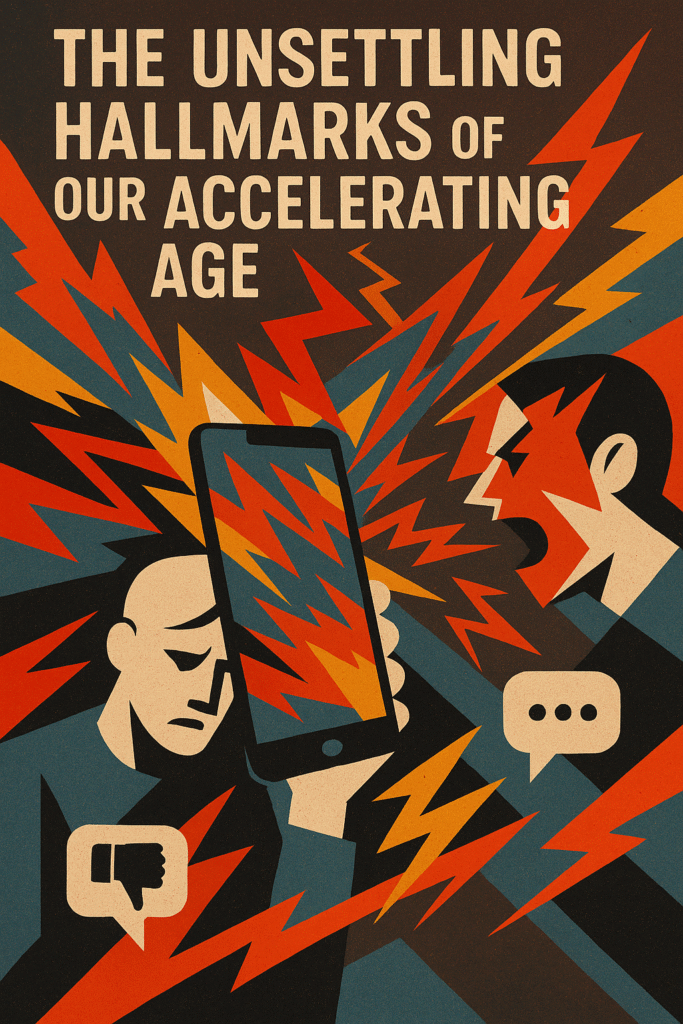
The Unsettling Hallmarks of Our Accelerating Age
The dust is still settling from what we’ve come to call the postmodern age, a period defined by its skepticism towards grand narratives, its embrace of fragmentation, and a pervasive sense of irony regarding universal truths and established authority. Yet, as we navigate the early decades of the 21st century, it’s increasingly clear we’ve moved beyond that particular landscape into something faster, more disorienting, and in crucial ways, profoundly less considerate.
We are arguably deep within the throes of what some term Digimodernism, an era where the digital realm is not merely a tool but the fundamental infrastructure of our reality. This isn’t just about having smartphones; it’s about living through screens, interacting via algorithms, and experiencing a constant, overwhelming deluge of information. The postmodern fragmentation of ideas is amplified into a hyper-fragmentation of attention and a blurring of lines between the real and the virtual, the personal and the performative. Identity becomes fluid, constantly curated and broadcast, and connection is instantaneous yet often superficial.
The rapid evolution of this digital saturation is now revealing a less anticipated, more troubling characteristic: an emerging “Age of Inconsiderateness.” The speed and relative anonymity of online interaction, coupled with the algorithmic amplification of emotionally charged content, seem to foster a decline in empathy and a rise in quick, often harsh, judgment. Nuance is lost in the scroll; complex issues are reduced to binary hot takes. Public discourse can devolve into performative outrage and tribalistic shouting matches, where the ease of expressing contempt often overrides the inclination towards understanding or compassion. This isn’t merely rudeness; it’s a systemic consequence of inhabiting digital spaces that prioritize reaction over reflection, virality over veracity, and the reinforcement of existing biases through echo chambers.
This momentous societal change challenges us deeply. It requires grappling with an information environment that can feel simultaneously liberating and suffocating. It demands conscious effort to cultivate empathy and critical thinking against the tide of instant reaction. Moving forward requires not just adapting to new technologies, but actively shaping a culture within them that values thoughtful engagement, respects differing perspectives, and pushes back against the gravitational pull towards a default state of digital disregard. How we navigate this age of acceleration and potential inconsiderateness will define the very fabric of our shared future.
Love, +B

